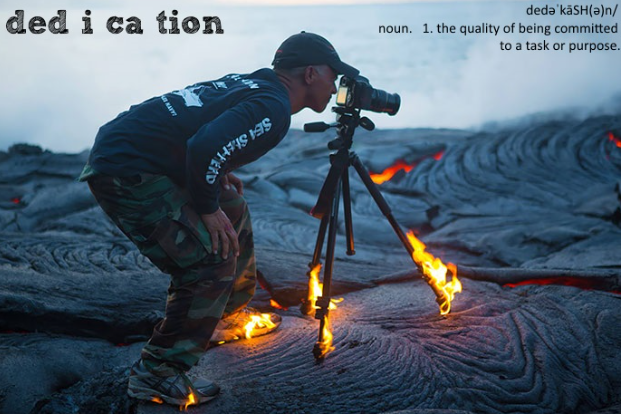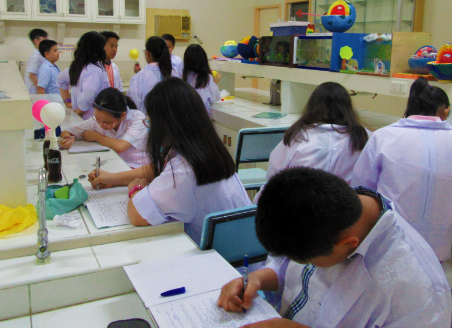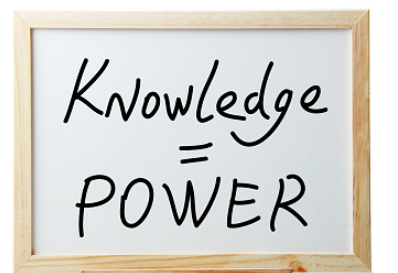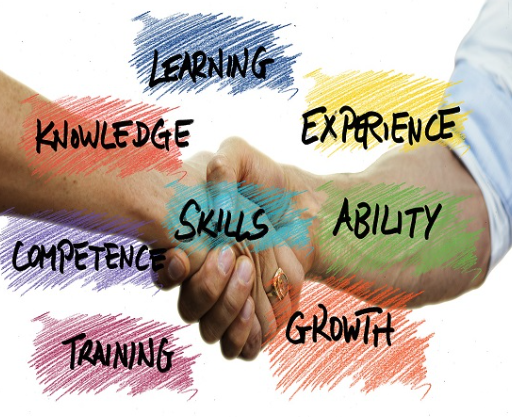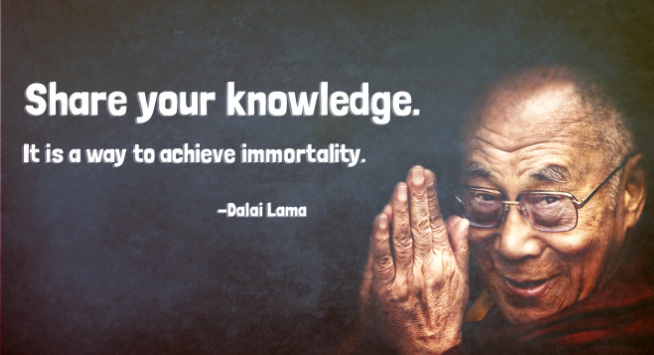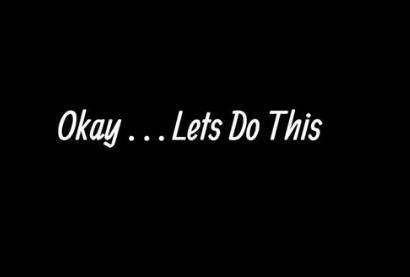Leadership skills refer to a set of abilities and qualities that enable individuals to effectively guide, inspire, and influence others towards achieving a common goal. These skills are essential for individuals in leadership positions, but they can also be developed and practiced by anyone who seeks to make a positive impact and take initiative in various aspects of life. Leadership skills encompass a wide range of abilities, including:
Communication: The ability to convey ideas and information clearly and effectively, both verbally and non-verbally. Good communication skills involve active listening, empathy, and the capacity to adapt communication style to different audiences.
Emotional Intelligence: The skill to recognize, understand, and manage one's own emotions and those of others. Emotional intelligence includes self-awareness, empathy, self-regulation, and effective relationship management.
Visionary Thinking: The capability to envision a compelling future and articulate it to others. It involves setting a clear direction, inspiring others with a shared vision, and aligning efforts towards common goals.
Decision-Making: The capacity to make informed and timely decisions by gathering and analyzing relevant information, considering different perspectives, and weighing potential risks and benefits.
Problem-Solving: The ability to identify and define problems, generate creative solutions, and implement effective strategies to overcome obstacles and achieve desired outcomes.
Adaptability: The skill to embrace change, navigate uncertainty, and adjust strategies and approaches in response to new circumstances or challenges.
Team Building: The capability to create and foster a positive and inclusive team environment, establish trust, promote collaboration, and leverage the strengths of team members to achieve collective goals.
Motivation and Inspiration: The skill to inspire and motivate others by providing purpose, recognition, and support. It involves empowering individuals, setting high standards, and fostering a sense of ownership and commitment.
Conflict Resolution: The ability to address and manage conflicts constructively by facilitating open dialogue, seeking common ground, and promoting win-win solutions that balance the needs and interests of different parties.
Integrity and Ethics: The commitment to acting with honesty, transparency, and ethical principles. It involves leading by example, maintaining confidentiality when appropriate, and making principled decisions.
Resilience: The capacity to bounce back from setbacks, cope with adversity, and maintain a positive attitude and determination in the face of challenges.
Delegation: The skill to effectively assign tasks and responsibilities to others, based on their strengths and capabilities, while providing necessary guidance and support.
Time Management: The ability to prioritize tasks, manage deadlines, and allocate resources efficiently to maximize productivity and achieve goals.
Coaching and Mentoring: The skill to guide and develop others by providing constructive feedback, offering guidance and support, and promoting their professional growth and success.
Networking and Relationship Building: The capability to establish and nurture relationships with stakeholders, colleagues, and industry professionals, fostering collaboration, and leveraging connections for mutual benefit.
Leadership skills are not limited to this list and may vary depending on the specific context and role. Developing these skills requires self-awareness, continuous learning, practice, and a commitment to personal and professional growth.
- How do you define leadership?
- What qualities do you believe are essential for effective leadership?
- How do you inspire and motivate others?
- Can you provide an example of a time when you successfully led a team or group?
- How do you handle conflicts and disagreements within a team?
- How do you set goals and priorities for yourself and your team?
- How do you communicate effectively with different stakeholders?
- How do you delegate tasks and responsibilities?
- How do you handle challenges and setbacks?
- How do you promote a positive and inclusive work environment?
- How do you provide constructive feedback and support the growth of your team members?
- How do you make decisions under pressure?
- How do you foster creativity and innovation within a team?
- How do you adapt your leadership style to different situations and individuals?
- How do you handle change and uncertainty?
- How do you build and maintain relationships with colleagues, superiors, and subordinates?
- How do you develop and nurture future leaders?
- How do you promote a culture of continuous learning and improvement?
- How do you manage time effectively to balance competing priorities?
- How do you handle ethical dilemmas and make principled decisions?
- How do you encourage collaboration and teamwork?
- How do you promote accountability and responsibility within a team?
- How do you handle feedback and criticism from others?
- How do you stay informed about industry trends and developments?
- How do you promote diversity and inclusion in your leadership practices?
- How do you demonstrate empathy and understanding towards others?
- How do you build trust and credibility with your team?
- How do you handle stress and maintain resilience as a leader?
- How do you promote a culture of open communication and feedback?
- How do you inspire a shared vision and align team members towards common goals?
- How do you demonstrate humility and the willingness to admit mistakes?
- How do you encourage and support the professional development of your team members?
- How do you encourage a sense of ownership and initiative within your team?
- How do you balance being assertive and approachable as a leader?
- How do you promote a healthy work-life balance for yourself and your team?
- How do you foster a positive and productive organizational culture?
- How do you lead by example and embody the values you expect from others?
- How do you navigate and manage conflicts of interest?
- How do you stay motivated and inspire others during challenging times?
- How do you measure the success of your leadership efforts?
Below are the quick solutions to the above questions but more detailed responses maybe required depending on the one questioning. For our case these are just enough.
- Leadership is the ability to guide and influence others towards achieving a common goal.
- Essential qualities for effective leadership include integrity, communication skills, empathy, vision, adaptability, and the ability to inspire and motivate others.
- I inspire and motivate others by setting a compelling vision, providing support and encouragement, recognizing and rewarding achievements, and fostering a positive and inclusive work environment.
- One example of successfully leading a team was when I coordinated a cross-functional project, ensuring clear communication, setting milestones, and leveraging the strengths of each team member to achieve our objectives.
- I handle conflicts and disagreements within a team by actively listening to all perspectives, facilitating open dialogue, seeking common ground, and working towards mutually beneficial solutions.
- I set goals and priorities by aligning them with the overall vision and strategy, considering input from team members, and breaking them down into actionable steps with measurable outcomes.
- Effective communication with different stakeholders involves tailoring the message to their needs, actively listening, providing clarity, and maintaining open lines of dialogue.
- Delegating tasks and responsibilities involves understanding the strengths and abilities of team members, clearly communicating expectations, providing necessary resources and support, and periodically checking progress.
- When facing challenges and setbacks, I remain resilient and maintain a problem-solving mindset. I analyze the situation, seek input from the team, adapt strategies as needed, and provide support to keep the team motivated.
- I promote a positive and inclusive work environment by valuing diversity, encouraging collaboration and mutual respect, addressing any issues promptly and fairly, and recognizing and celebrating individual and team achievements.
- I provide constructive feedback by focusing on specific behaviors or outcomes, using a balanced approach of highlighting strengths and suggesting areas for improvement, and offering support and resources for growth.
- Making decisions under pressure involves gathering relevant information, considering potential impacts and risks, consulting with key stakeholders, and making a timely and informed choice based on available data and experience.
- I foster creativity and innovation within a team by encouraging new ideas, creating a safe space for sharing and experimentation, providing resources and support, and recognizing and rewarding innovative thinking.
- I adapt my leadership style by assessing the situation, understanding the needs and preferences of individuals and the team, and employing a flexible approach that best suits the circumstances, whether it’s being more directive or collaborative.
- I handle change and uncertainty by maintaining open and transparent communication, providing clarity on expectations, supporting individuals through the transition, and seeking opportunities for growth and learning.
- I build and maintain relationships by actively listening, showing genuine interest and empathy, treating others with respect, seeking their input and perspectives, and following through on commitments.
- I develop and nurture future leaders by providing mentoring and coaching opportunities, assigning challenging assignments, empowering individuals to make decisions, and offering opportunities for professional development and growth.
- I promote a culture of continuous learning and improvement by encouraging a growth mindset, providing opportunities for training and development, fostering knowledge-sharing, and recognizing and rewarding a commitment to learning.
- I manage time effectively by prioritizing tasks, setting realistic deadlines, delegating when necessary, avoiding multitasking, and employing time management techniques such as goal setting and scheduling.
- I handle ethical dilemmas by carefully considering the potential impacts and consequences, seeking input from trusted colleagues or mentors, adhering to ethical guidelines and principles, and making decisions that prioritize integrity and the well-being of stakeholders.
- I encourage collaboration and teamwork by fostering an environment of trust, promoting open communication and active listening, setting common goals, recognizing and valuing individual contributions, and facilitating effective collaboration tools and processes.
- I promote accountability and responsibility within a team by clearly defining roles and expectations, establishing measurable goals and objectives, providing regular feedback and support, and holding individuals and the team accountable for their commitments.
- I handle feedback and criticism by maintaining an open mind, separating the message from the messenger, seeking to understand the underlying concerns, considering the feedback objectively, and using it as an opportunity for growth and improvement.
- I stay informed about industry trends and developments by regularly reading industry publications, attending conferences or webinars, participating in professional networks, and engaging in ongoing learning and self-development.
- I promote diversity and inclusion by creating a culture of respect and appreciation for different perspectives, actively seeking diverse talent, implementing inclusive policies and practices, and providing opportunities for underrepresented groups to thrive.
- I demonstrate empathy and understanding towards others by actively listening, seeking to understand their perspectives, validating their feelings and experiences, and showing compassion and support.
- I build trust and credibility with my team by being reliable and consistent in my actions, honoring commitments, maintaining confidentiality, being transparent and honest in communication, and treating everyone with fairness and respect.
- I handle stress by practicing self-care and maintaining a healthy work-life balance, seeking support from trusted colleagues or mentors, practicing mindfulness and stress management techniques, and maintaining a positive mindset.
- I promote a culture of open communication and feedback by creating a safe and non-judgmental environment, actively seeking input and opinions, providing opportunities for anonymous feedback, and responding constructively to suggestions or concerns.
- I inspire a shared vision by effectively communicating the purpose and goals, connecting it to the values and aspirations of individuals, involving team members in the decision-making process, and ensuring alignment between personal and organizational goals.
- I demonstrate humility and the willingness to admit mistakes by taking ownership of my errors, apologizing when necessary, seeking to understand the root causes, learning from the experience, and making necessary changes to avoid repeating the same mistakes.
- I encourage and support the professional development of team members by identifying their strengths and areas for growth, providing opportunities for training and advancement, assigning challenging projects, and offering mentoring and coaching.
- I encourage a sense of ownership and initiative within my team by delegating authority and decision-making, providing autonomy in how tasks are accomplished, recognizing and valuing individual contributions, and fostering an environment of trust and empowerment.
- I balance being assertive and approachable by maintaining a confident and decisive demeanor, clearly communicating expectations and boundaries, actively listening to others, being open to different perspectives, and treating everyone with respect and kindness.
- I promote a healthy work-life balance by setting an example, encouraging time off and breaks, promoting flexible work arrangements where possible, and providing resources and support for stress management and well-being.
- I foster a positive and productive organizational culture by promoting a shared vision and values, recognizing and rewarding desired behaviors, fostering effective communication and collaboration, addressing conflicts and issues promptly, and promoting a culture of continuous learning and improvement.
- I lead by example by embodying the values I expect from others, demonstrating integrity in my actions, being accountable for my decisions, treating others with respect and fairness, and continuously seeking personal and professional growth.
- I navigate and manage conflicts of interest by ensuring transparency, avoiding favoritism or bias, maintaining confidentiality when necessary, adhering to ethical guidelines, and making decisions that prioritize the best interests of the organization and stakeholders.
- I stay motivated and inspire others during challenging times by providing support and encouragement, maintaining open lines of communication, setting clear goals and expectations, recognizing and celebrating progress and achievements, and fostering a culture of resilience and adaptability.
- I measure the success of my leadership efforts by evaluating the achievement of objectives, assessing the growth and development of team members, gathering feedback from stakeholders, and considering the overall impact on the organization
Share love with others on
Like this:
Like Loading...
Related


